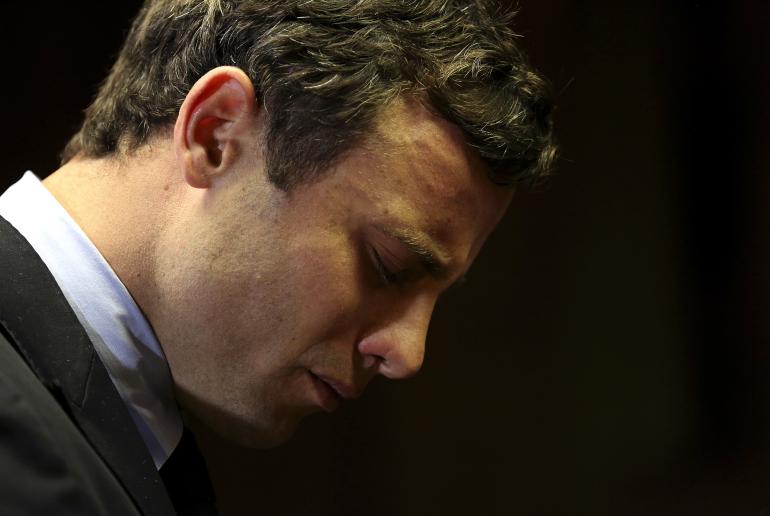Blade Runner Behind Bars
The cost of a human life is questioned after the trial of Olympian Oscar Pistorius finally comes to a conclusion. On October 21, 2014 in Pretoria, South Africa, Judge Thokozile Masipa sentenced Pistorius to five years in prison and a concurrent three-year sentence suspending Pistorius from firearms. Pistorius had admitted to killing his model girlfriend, Reeva Steenkamp, but not intentionally. Rather, he claims to have mistaken her for an intruder in his home on the early morning of February 14, 2014. Masipa’s verdict on September 11-12, 2014 charged Pistorius guilty of the culpable homicide of Steenkamp and reckless use of a firearm.
The case began on March 3, 2014 and certainly never failed to lose excitement. With both realistic re-enactments and graphic images displayed in court, tragedy and heartbreak were both present throughout the trial. The emotional roller coaster for Pistorius consisted of tears, agony, and retching as the trial proceeded. The fastest double amputee to compete with able-bodied runners, nicknamed, The Blade Runner, struggled to maintain composure often during the trial, which, ultimately, damaged his credibility. The once-hero who used to reside in a luxury four-bedroom home in the Silver Woods Estate is now behind bars.

africa.com/Oscar
-pistorius/
Under High Court of South African Law, Pistorius will be permitted consideration to be moved to community supervision or house arrest after serving one-sixth, or ten months, in prison. However, if prosecutors seek appeal in the case, prison time will be extended.
The reaction from the public consists of mixed feelings regarding Pistorius’ sentence and the moral issues of status, gender, race, and justice being addressed. Many are outraged over the thought that Pistorius may only serve ten months in prison at the cost of a human life. Former Harvard Graduate and chief executive of a gold mining company, Garikai Chengu, took to twitter saying, “Pistorius’s ridiculous sentence says a lot about how the court puts racial and male privilege above the safety of women.” Additionally, spokeswoman for the Women’s League of the governing African National Congress party, Jacqui Mofokeng, told the BBC, “This is sending a very, very wrong message out there.” The party is “not happy” with the sentence and is in favor of an appeal by the prosecution. One South African, Mr. Mbatha, while waiting outside the courtroom told reporters, “If it was a black man, he would have never received such a light sentence, but that’s how things are in South Africa.” Donald Trump even tweeted, “Oscar Pistorius only gets five years in prison for killing his girlfriend. Ridiculous decision! Judge couldn’t even read her own writings.” As well as, “Oscar Pistorius will likely only serve 10 months for the cold blooded murder of his girlfriend. Another O.J. travesty. The judge is a moron!” Per contra, others like British columnist Simon Jenkins feel sympathetic for Pistorius. Jenkins told The Guardian, “Men such as Pistorius have had their lives ruined, their failings exposed and chance enough for them to reflect on their crimes and what they can do to atone for them, no one will be more or less ‘deterred’ by the length of his jail sentence.”

http://www .nbcnews.c om/storyli ne /pistor I us-trial/i-n ever-told-r eeva- stee nkamp-i-lo ved-her-o scar-pisto r ius-n76461
The reactions of those more immediately affected by the case appear to be not quite as opinionated as those of the public. Reeva Steenkamp’s mother, June Steenkamp, told reporters, “I’m just glad it’s over.” Pistorius’s uncle, Arnold Pistorius said, “We accept the judgement,” and asked news media to “let us move forward” and “give us some degree of dignity and privacy as we do so.” Judge Masipa said her decision was “about achieving the right balance — proportionality.” Responding to the reactions of people claiming her sentence was biased and unfair she said, “It would be a sad day for this country if an impression was created that there is one law for the poor and disadvantaged and another for the rich and famous.”









Cody Maynard • Nov 15, 2014 at 12:37 pm
Great writing. It might be a little out-dated but the article is an impeccable overview of the full story.